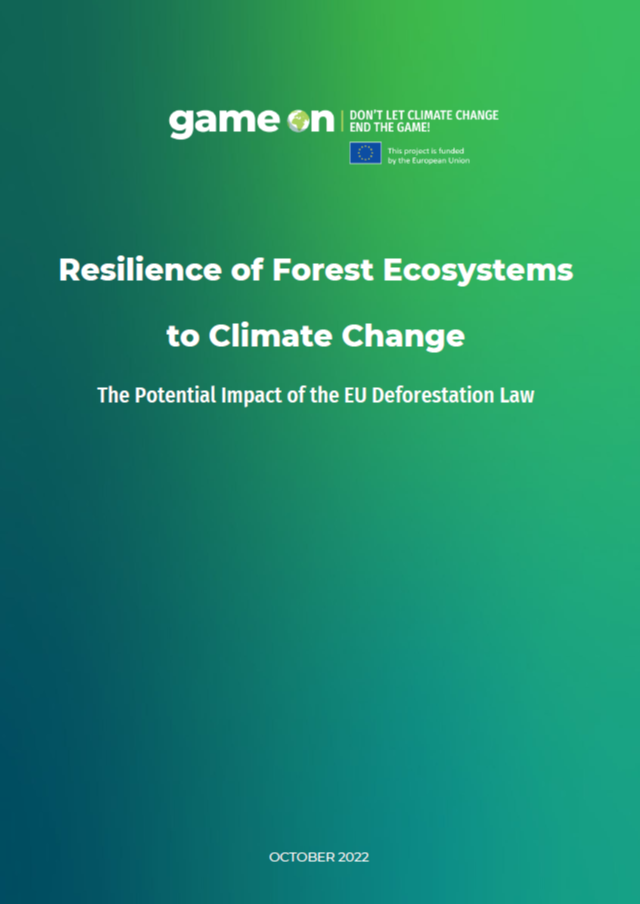
The potential impact of the ‘EU Deforestation Law’ on the resilience of forest ecosystems to climate change and their ability to adapt
Study on EU climate and ecosystem policies
According to scientific evidence, forest ecosystems and climate change can have an effect on each other — forest ecosystems are carbon sinks that help to reduce and store GHG emissions from the atmosphere which mitigates the effect of climate change, while climate change poses a serious threat to the ecosystem services of the forests. Protecting forest areas and their ecosystems is the most cost-efficient and accessible way of balancing the unavoidable emissions in the future and increasing a region’s adaptive capacity.
The Deforestation Regulation, as a legally binding act within the European Union, has to be coherent with EU strategies and long-term goals. In this study, the aims and measures of the Deforestation Regulation were analysed by their connections to the European Green Deal and key strategic documents on related areas, such as the Biodiversity Strategy, Farm to Fork Strategy, Forest Strategy, Strategy on Adaptation to Climate Change, and the national long-term energy and climate strategies. The strategies highlight the importance of forest ecosystems in the green economy, transition to renewable energy-based energy production and consumption, adaptation to climate change and maintaining biodiversity, and contributing to food security. The Deforestation Regulation is in line with these strategic goals, while it focuses on the external presence of the EU in global markets; therefore, it supplements the sectoral strategies which are limited to the territory of the Union.
By identifying gaps and proposing recommendations, this study aimed to increase the efficiency of the implementation of the Deforestation Regulation.
